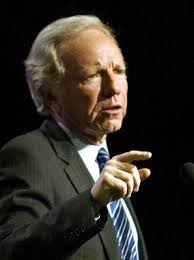...
Look, goddammit. Music has always been desperately important to me. I've never been that firmly anchored, and without the solace and promise of the Rock n Roll I loved I'm not sure I can tell you unequivocally that we'd all be having this conversation today.
And I've never been terribly experimental in what I demanded from my music. Guitars, loud and melodic, tunes you could sing along with and lyrics that spoke to more than the junior fucking prom was the extent of my requirements. There are certain bands I hang my hat on, music makers who's product over the years is tied inextricably to my identity. The riffs have become deep trenches in my pre-frontal cortex and the lyrics tell my life's story in a way I never could. I could run through the all-to-predictable list, from Boston to Journey, from BTO to AC/DC, from Springsteen to Zevon, but you'll find no surprises on that list, even if you'll never understand why the songs cause me to tear up at apparently odd and unpredictable moments.
But if there was one constant, one band that represented the sound track of my life, one influence that was there for every important moment over a life lived profligately and without suitable care or caution, that band would be Aerosmith. From my first love, our awkwardly passionate attempts at finding something special to her miscarriage and her father's proceeding and somewhat charming attempts on my life, through my descent into and experience with addiction and recovery, from Toys in the Attic and Rocks to Get a Grip, Nine Lives and Just Push Play, along with Warren Zevon, Aerosmith has been the musical anchor of my world, the lens through which I tried with uneven success to understand the world and my place in it.
So now what am I left to think? The example I most often use to describe and define the vapidity and disengagement of the American population is American Idol, that mindless sop to our cultural worship of immediate success and instant, unearned fame. And so the arc of history brings us to a place where the hopelessly stupid, drug-addled and emotionally damaged Paula Abdul is forced to leave the shows staff of so-called 'judges' and is replaced with none other than that elder statesman of the music in my soul, Steven Tyler. Now along with the vapid and mindless ranks of Jennifer Lopez and the charming but otherwise unemployable Randy Jackson, he'll form the nexus of illusory dreams and savage heartbreak for the millions who sit, curled up in a snuggy in dimly lit and poorly decorated living rooms from Burbank to Bangor drawing impossible emotional highs and lows from the airwaves like a Vampire sups from the underside of a cow.
And millions who know nothing of the past, who owe no debt of consequence to the complex guitars and soaring vocals of Aerosmith, who share no identity with the young madmen turned successful artist turned national treasure and know nothing of the twisted path they walked will find this exotic, odd-looking man strangely charismatic, and he will become something he is not, but will always henceforth be. When all the danger and all the history and all the bad acts and redemption have all been left behind, he'll be that nice boy on American Idol, another Bon Jovi to be loved by old women who forty years ago would have found him frightening and obscene.
People will say "mikey, you don't have to watch" and it's true, and I won't. And my memories of Mama Kin and Walkin' the Dog in endless summer nights in a pickup truck on the shore of Benbrook Lake will remain undisturbed. The past immutable, the future unknowable, musical entropy takes hold as it must. But I cannot help but be saddened, even a little disappointed. I couldn't say what my expectations were, but if such a thing is possible, a piece of my life is now forever out of reach.
...
Kristi Noem, Dog Assassin
4 hours ago


